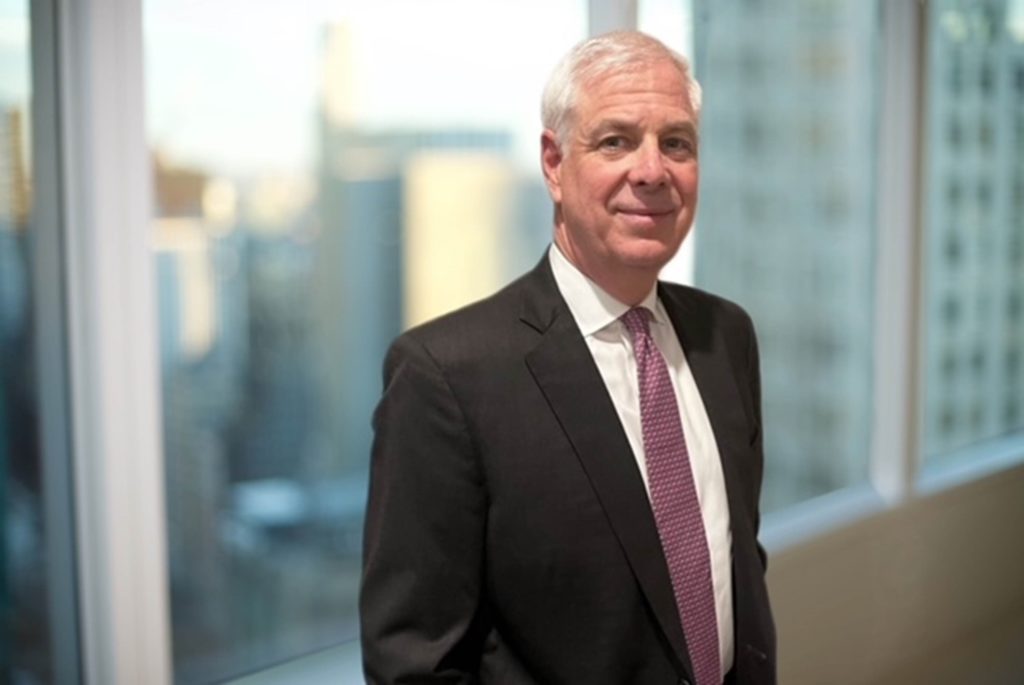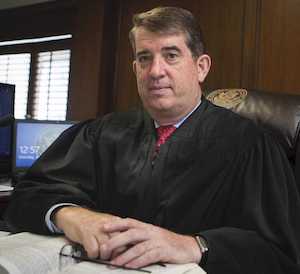Brazos Electric Power Cooperative is expected to file a final plan within days with a Houston judge that will map the Central Texas power supplier’s road out of bankruptcy and toward financial stability, according to lawyers involved in the litigation.
The proposed plan reduces the amount that Waco-based Brazos owes the Electric Reliability Council of Texas by hundreds of millions of dollars, requires Brazos to sell three of its power plants, creates a fund for low-income residents struggling with high electric bills and raises more than $1.5 billion in financing, according to court documents filed in the case.
Brazos filed for Chapter 11 restructuring after ERCOT slapped the company with a $1.9 billion bill for electricity sold to Brazos during Winter Storm Uri, which were four days in February 2021 in which temperatures plunged to record lows with snow and freezing rain caused power blackouts across Texas.

“We believe we have an agreement in principle with all the major stakeholders,” O’Melveny & Myers partner Lou Strubeck told The Texas Lawbook. “There will be some final adjustments, but we believe we will have a plan in front of the judge next week for him to approve and will allow us to start moving forward.”
“The agreement with ERCOT is unprecedented because it is the first time that ERCOT has done a settlement of this kind,” Strubeck said. “This is one of the most complex and challenging bankruptcies that I have ever handled.”
U.S. Bankruptcy Chief Judge David Jones of the Southern District of Texas has scheduled a hearing for Sept. 13 to consider granting conditional approval of the tentative plan, which is officially called a disclosure statement.
Under the agreement as it stands, Brazos will pay ERCOT more than $1.1 billion immediately and an estimated $170 million in the future. In addition, ERCOT will get some of the proceeds from Brazos selling three of its power plants in 2023.
Lawyers involved in the bankruptcy say Brazos will not have to pay ERCOT about $500 million that ERCOT billed the power supplier.
The plan also includes the creation of a $140 million “hardship fund” that Brazos’ customers living near the poverty level can access to help pay their electric bills.

“I want a resolution,” Judge Jones told lawyers at a hearing earlier this year, “for the person that lives in a trailer in Central Texas and lives somehow on $1,800 a month that can’t afford a doubling of their electric bill because that means they can’t buy groceries on the last week of the month. That’s who we need to be working for.”
The agreement provides that Brazos and some of its co-op members will raise between $1.5 billion and $2 billion through securitizations, which would take place at the end of 2022 and the first quarter of 2023.
Brazos blamed its bankruptcy on ERCOT for imposing a staggering rate of $9,000 per megawatt-hour — hundreds of times the normal rate — on electricity buyers during the storm.
ERCOT contends that price was justified, given the extraordinary market conditions created by the storm and, moreover, that it had no choice but to impose the high rate because it was ordered to do so by the Texas Public Utility Commission.
Most legal experts believed an agreement between Brazos and ERCOT was highly unlikely, as the parties were so far apart on their demands.
But Strubeck and ERCOT’s lead lawyer, Jamil Alibhai of Munsch Hardt, told Judge Jones in an earlier hearing that the judge’s decision to send the bankruptcy case to mediation before fellow Houston Bankruptcy Judge Marvin Isgur was instrumental to reaching this agreement.
“Judge Isgur was very creative in the construction of this agreement,” Strubeck said. “If not for Judge Isgur’s hard work, we would not have an agreement.”
The Brazos bankruptcy has been costly. Since filing for Chapter 11 protection in March 2021, Brazos has paid the legal and financial advisors working on the restructuring more than $80 million.
In all, more than 150 lawyers from law firms — including Norton Rose Fulbright, O’Melveny, Kirkland & Ellis, Munsch Hardt, Porter Hedges, Foley and Eversheds — have billed time on the matter. Their rates range from $400 to $1,700 an hour.
Two financial advisory firms, Berkeley Research Group and FTI Consulting, have hit Brazos with tabs that exceed $10 million each.
